Canada Publishes Final VOC Regulations for Certain Products
Earlier this month, the Volatile Organic Compound Concentration Limits for Certain Products Regulations were published in the Canada Gazette, Part II: Vol. 156, No. 1 – January 5, 2022. The regulations apply to manufacturers and importers and establish concentration limits for volatile organic compounds (VOCs) in approximately 130 product categories and subcategories. According to the Canadian government, the objective of the regulations is to “protect the environment and health of Canadians from the effects of air pollution by reducing VOC emissions.” In brief, the Canadian VOC regulations are modeled after those of California, and cover many of the same cleaning product categories covered by the California Air Resource Board (CARB) Consumer Product Regulations.
Background
On July 6, 2019, the proposed Volatile Organic Compound Concentration Limits for Certain Products Regulations were published in the Canada Gazette, Part I for a 75-day public comment period. Comments received on this publication were considered in the development of the final regulations.
Key elements of the regulations
The regulations establish maximum VOC concentration limits and emission potentials for the manufacture and import of over 130 categories and subcategories of products. The regulations prohibit the manufacture and import of products with VOCs in excess of their respective category-specific limits unless a permit is obtained.
The types of products covered by the Canadian VOC regulations include air fresheners, general purpose cleaners, glass cleaners, bathroom cleaners, graffiti removers, and other cleaning product categories similar to those covered by CARB VOC regulations. In addition, the Canadian VOC regulations cover personal care products; automotive and household maintenance products; adhesives, adhesive removers, sealants, and caulks; and other miscellaneous products.
The regulations include three alternative compliance options to “provide flexibility in complying with the regulations.” These include:
- Permit – Technical or Economic Non-Feasibility
- Permit – Product Whose Use Results in Lower VOC Emissions
- VOC Compliance Unit Trading System that allows companies to balance emissions from products that exceed the concentration limits with compliance units earned from products that were reformulated to have VOC concentration lower than the regulatory limits. The program also allows companies to trade compliance units with other companies.
Implementation of the regulations
The Volatile Organic Compound Concentration Limits for Certain Products Regulations come into force on January 1, 2023, to allow for the application for permits and the building of compliance units one year in advance of the coming into force of the product limits.
Maximum VOC Concentration Limits and Emission Potentials for the manufacture and import of products listed in the schedules to the regulations will come into effect on January 1, 2024, for all product categories, except disinfectants, which come into effect on January 1, 2025.
The regulations and Canadian businesses
The regulations apply to any person who manufactures products in or imports products to Canada that contain VOCs and belong to one of the regulated product categories or subcategories.
The regulations do not require regulatees to submit reports or conduct product testing to comply with the regulations. However, the onus is on regulatees to ensure that the products they import or manufacture meet the regulatory limits. The determination of VOC concentration for the purposes of these regulations must be performed by an accredited laboratory.
Manufacturers and importers of a regulated product are required to indicate, on the product container, the date on which the product was manufactured or a code representing that date.
Manufacturers and importers of a regulated product also are required to keep records regarding regulated products in Canada for a period of at least five years.
Related links
- Volatile organic compounds in products overview
- About environmental and wildlife enforcement
- ISSA chemical regulation-related resources
For more information about these Canadian and other VOC regulations, please contact ISSA General Counsel Bill Balek.














